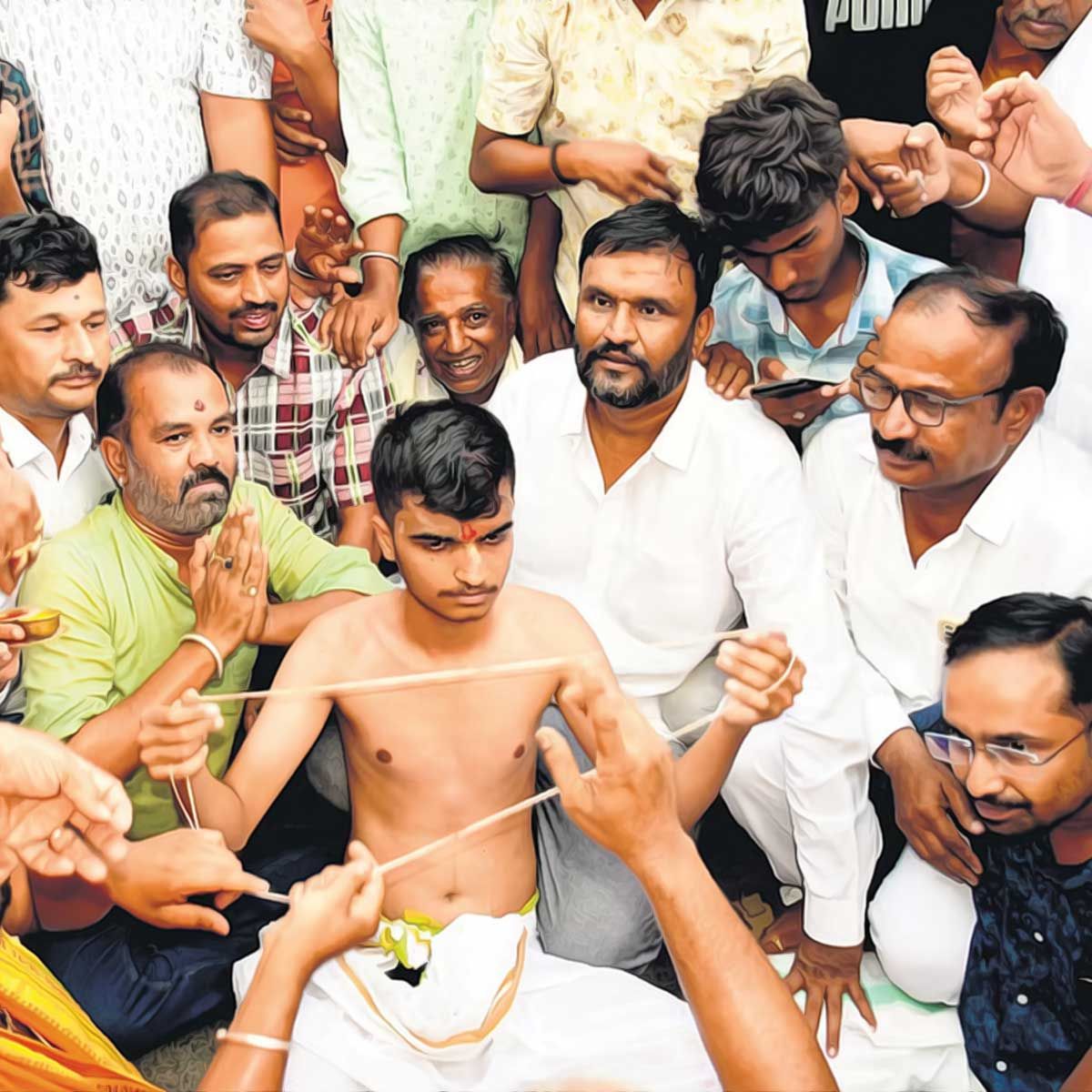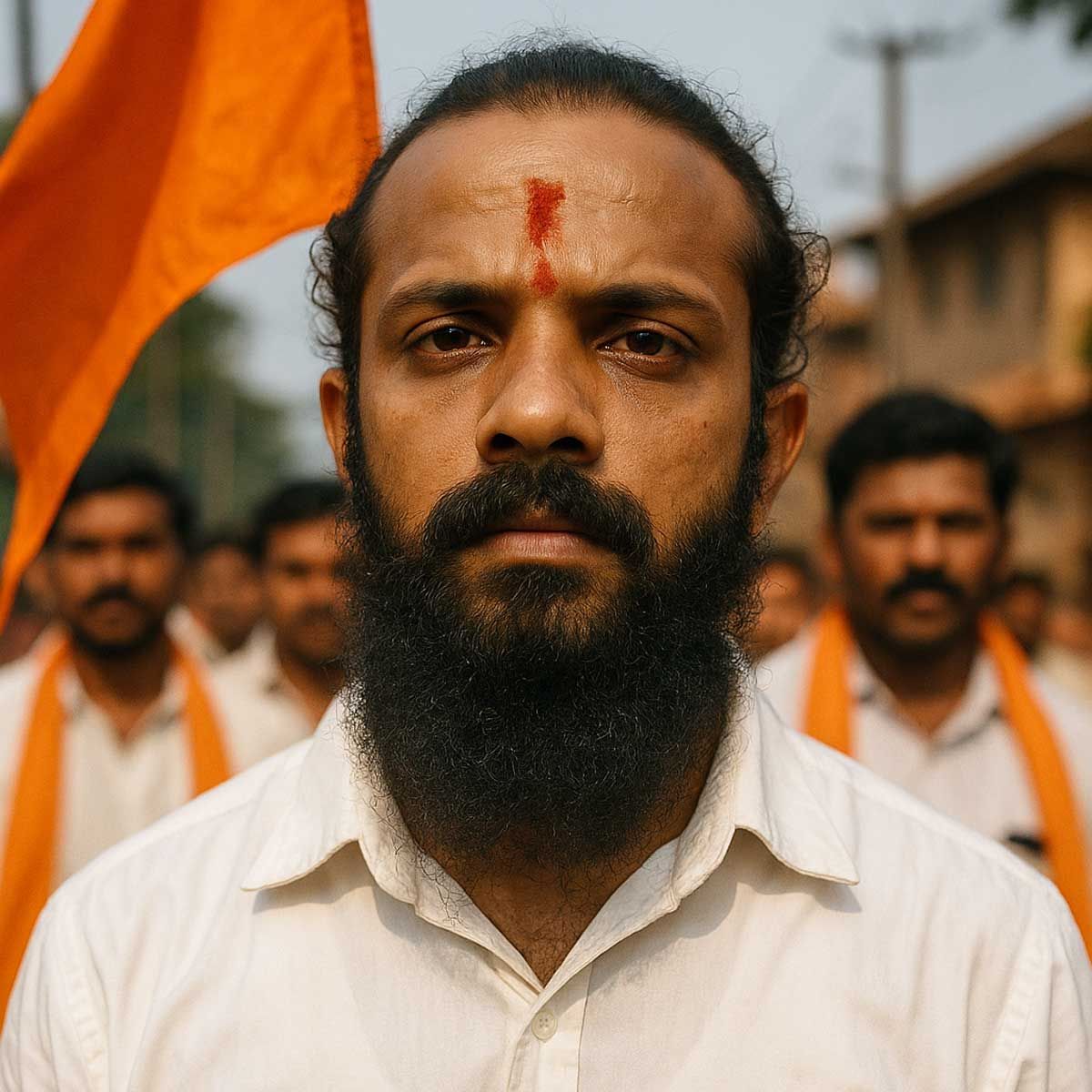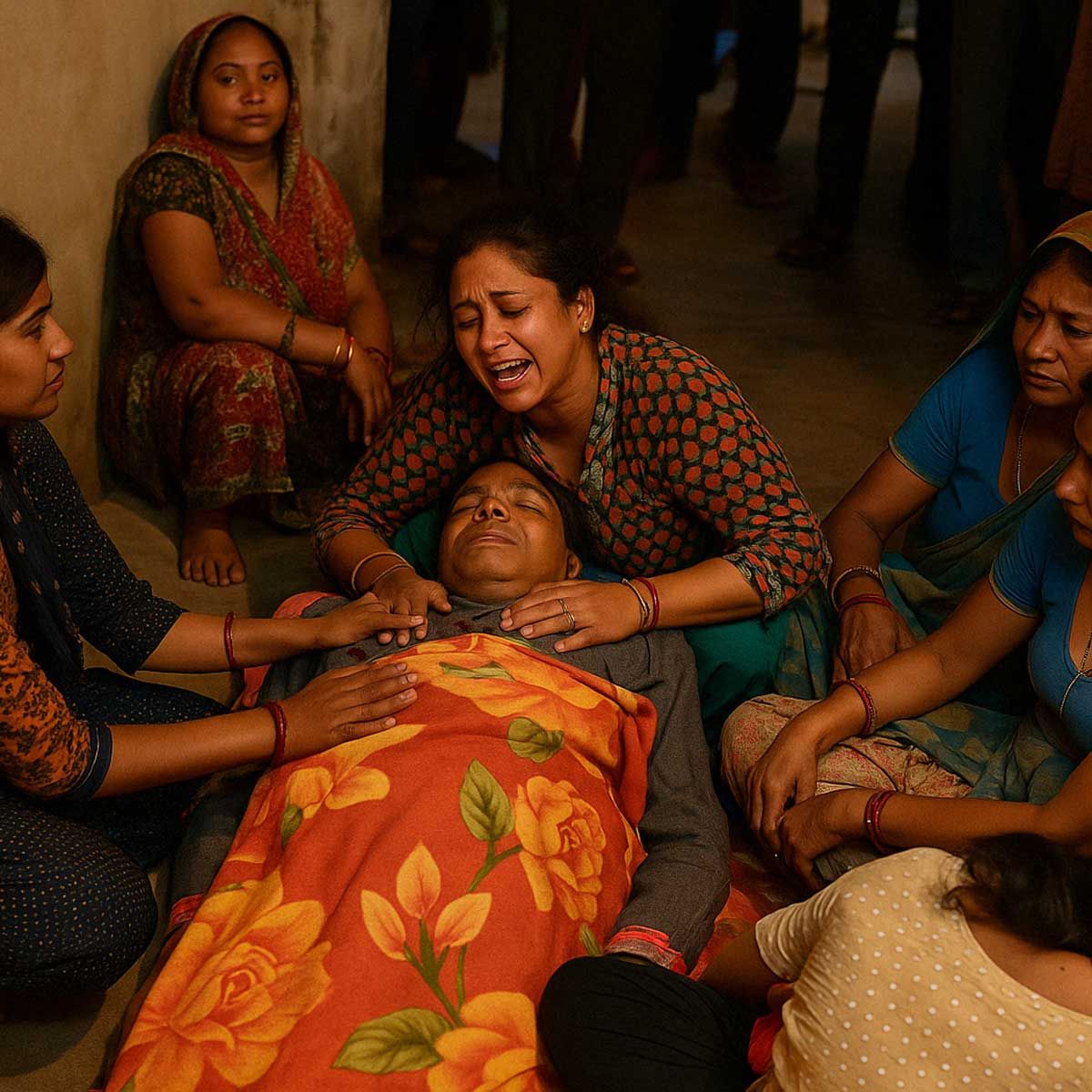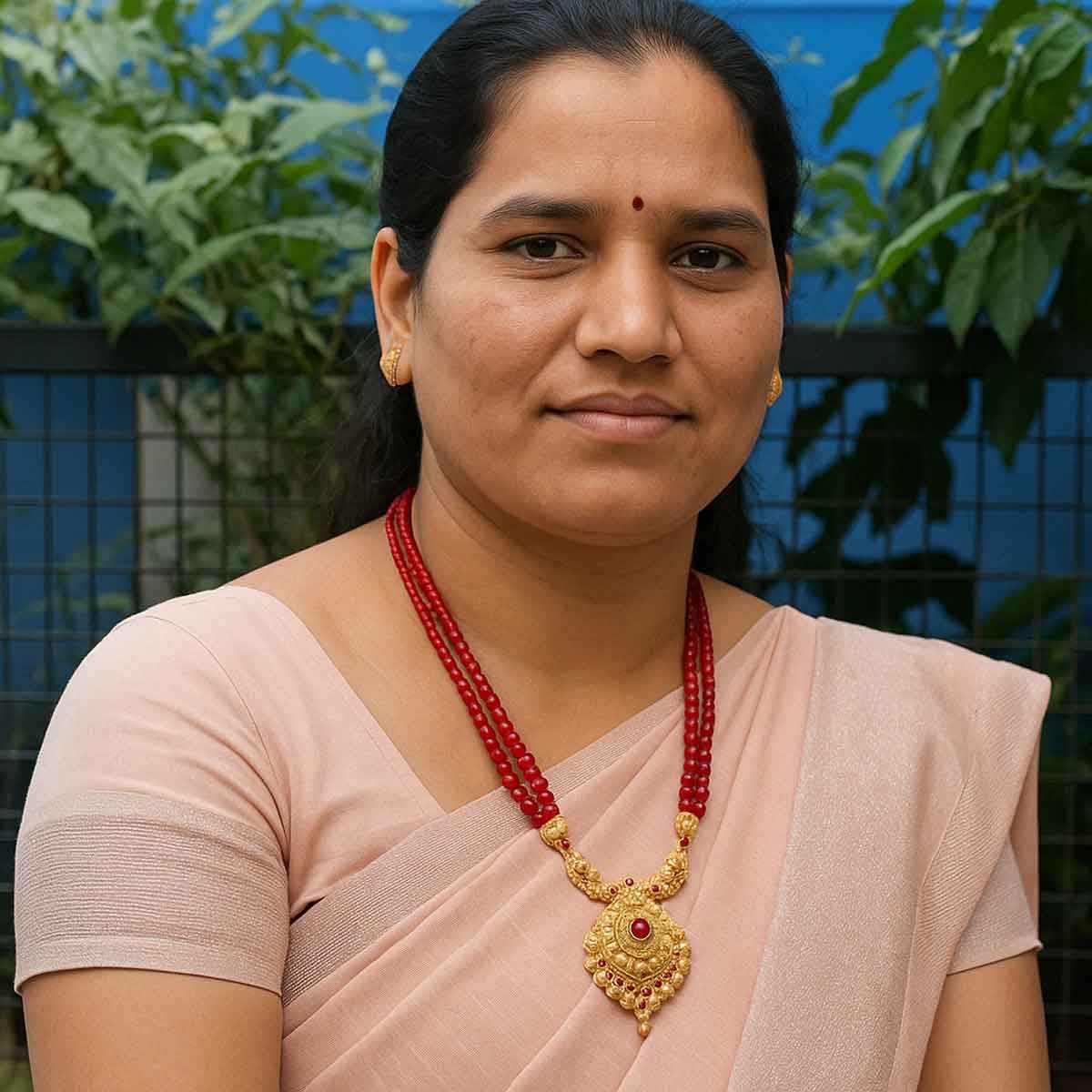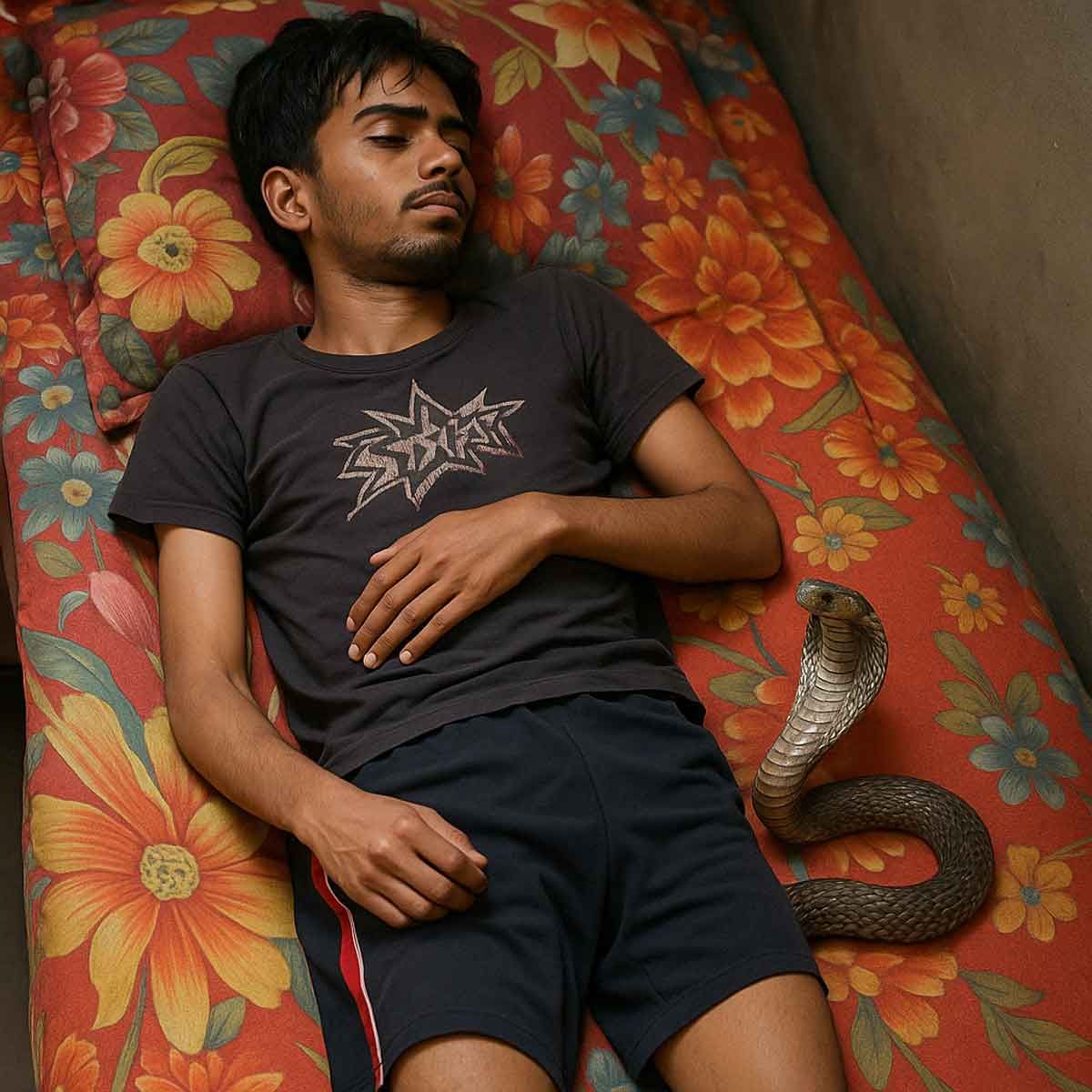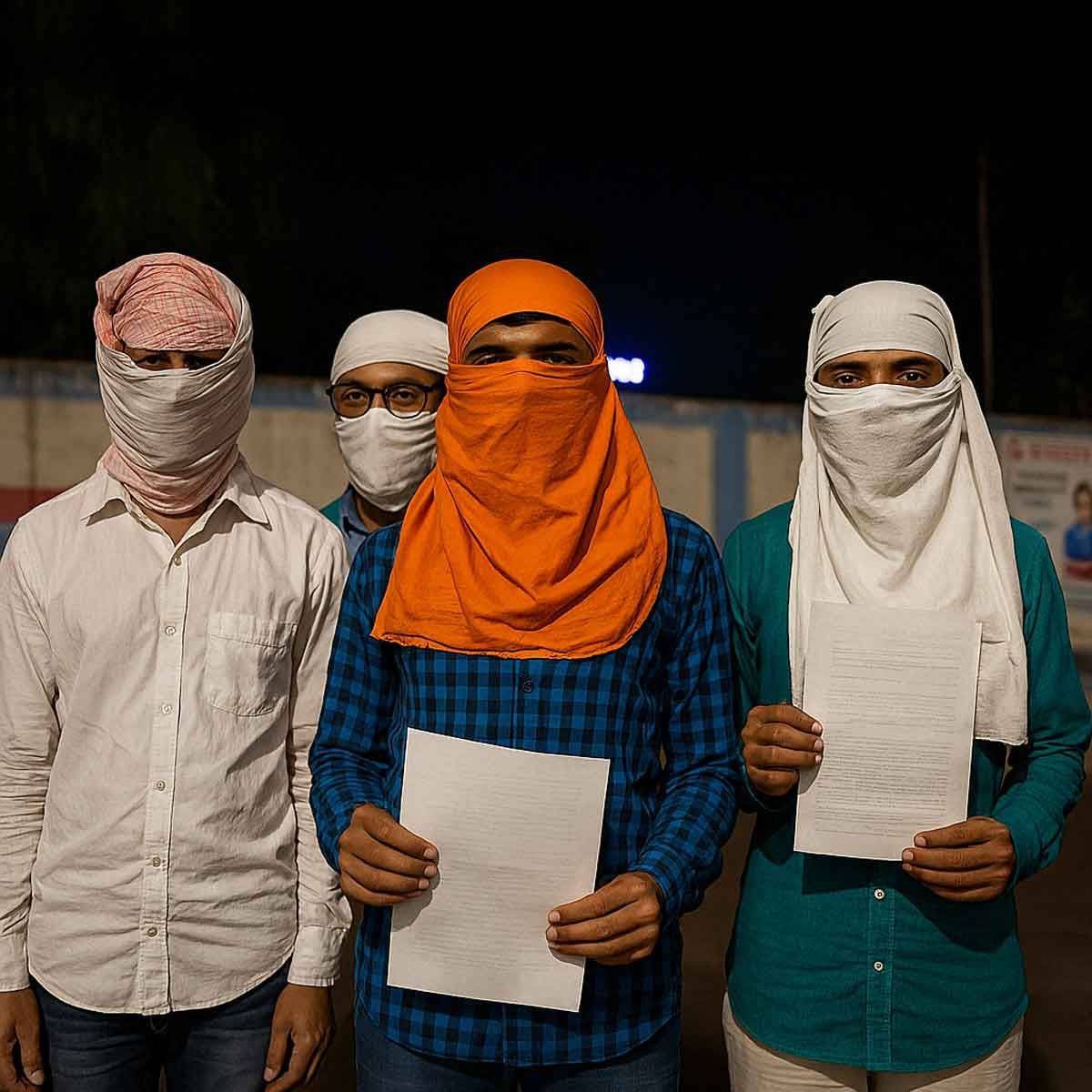More Coverage
Twitter Coverage
Satyaagrah
Written on
Satyaagrah
Written on
Satyaagrah
Written on
Satyaagrah
Written on
Satyaagrah
Written on
JOIN SATYAAGRAH SOCIAL MEDIA
Even the most ruthless criminals who tortured and killed a woman & her parents over 'witchcraft' deserves dignity, says Orissa HC, commuting death sentences to life imprisonment, as courts prioritize reform while justice for the victims fades into silence
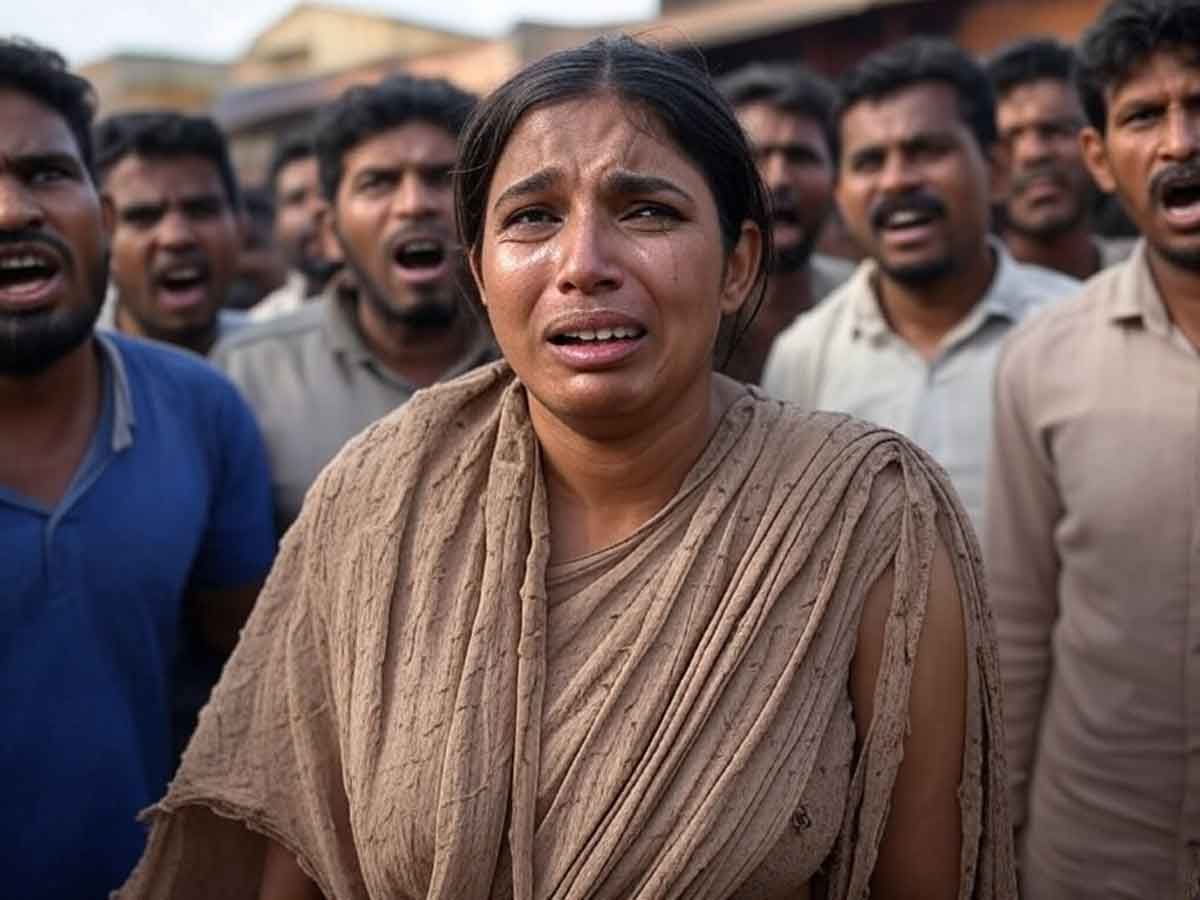
On 15th January, the Orissa High Court reduced the death sentence of nine individuals convicted for the horrific 2016 murder of three family members in Rayagada. The killings were rooted in baseless allegations of witchcraft. The Division Bench comprising Justices Sangam Kumar Sahoo and Radha Krishna Pattanaik commuted the sentence to imprisonment for life, emphasizing the possibility of reformation for the convicts. The court stated that imprisonment until the end of natural life was an appropriate punishment, acknowledging the potential for the convicts’ rehabilitation.
In its observation, the bench firmly stated, “We should not forget that the criminal, however ruthless he might be, is nevertheless a human being and is entitled to a life of dignity notwithstanding his crime. It is for the prosecution and the Court to determine whether such a person, notwithstanding his crime, can be reformed and rehabilitated.” The court also noted the challenges in the evidence presented and highlighted that the prosecution heavily relied on the testimony of the sole eyewitness.
The case’s informant, a close relative of the victims, was the only person to witness part of the incident. However, the defense counsel argued that her testimony should be treated with suspicion due to her status as an "interested witness." The court dismissed this contention, asserting, “We are not inclined to accept such submission as ‘related’ is not equivalent to ‘interested.’ The witness may be called interested only when he or she has derived some benefit from the result of a litigation in the decree in a civil case, or in seeing an accused person punished. A witness, who is a natural one and is the only possible eye witness in the circumstances of a case, cannot be said to be interested.”
The bench elaborated on the significance of quality over quantity when it comes to witness testimony, underscoring that the law does not require multiple witnesses for a conviction. “Neither the legislature (Section 134, Evidence Act, 1872) nor the judiciary mandates that there must be particular number of witnesses to record an order of conviction against the accused. Our legal system has always laid emphasis on value, weight and quality of evidence rather than on quantity, multiplicity or plurality of witnesses. It is, therefore, open to a competent court to fully and completely rely on a solitary witness and record conviction,” the court noted.
|
The issue of the delay in filing the FIR was another point of contention. However, the court found the explanation given by the informant satisfactory. It stated, “Since it was a small village consisting of only 25 houses and she was staying in the house of the Samiti member, she can be said to be under the close watch of not only the appellants but also the Samiti member who appears to have closeness with the appellants. We are of the view that the explanation furnished by P.W.1 regarding delay in lodging the F.I.R. is quite satisfactory and plausible.”
The appellants contended that the informant had only witnessed part of the events in the cowshed and did not see what happened to the victims afterward, as their remains were never recovered. Despite this argument, the court referenced multiple Supreme Court judgments, reaffirming that the recovery of a corpse, or corpus delicti, is not a prerequisite for conviction. This established legal principle allowed the court to proceed with its verdict based on other compelling evidence.
The bench elaborated further, stating that once it was clear the victims were removed from the cowshed one by one and subsequently declared murdered by the informant, their continued absence from the living world shifted the burden of explanation to the appellants under Section 106 of the Indian Evidence Act. "It falls upon the appellants to account, under Section 106, how they met their demise," the court noted, emphasizing that unexplained circumstances surrounding their disappearance supported the prosecution’s case.
Adding weight to the conviction were the actions and confessions of the appellants. The informant revealed that after the killings, the appellants instructed her to cleanse herself in a spring, stating that they, too, could not return home without washing off the act of murder. Furthermore, they made an extrajudicial confession admitting to the crime. These admissions were deemed critical evidence under Section 8 of the Evidence Act, which permits consideration of such confessions as part of the criminal proceedings.
The court convicted the appellants under various provisions of the Indian Penal Code (IPC), including:
- Section 342 (wrongful confinement),
- Section 364 (kidnapping or abducting with intent to murder),
- Section 365 (kidnapping or abducting with intent to secretly and wrongfully confine),
- Section 201 (causing disappearance of evidence),
- Section 506 (criminal intimidation), and
- Section 302 (murder).
In its deliberation, the bench also scrutinized the process followed during the trial. It noted that the trial court, after convicting the appellants on 21st October 2021, scheduled a separate hearing to determine the sentence. The trial court deemed the crime to be one of the "rarest of rare" cases, warranting the death penalty. However, the bench observed significant procedural lapses in the trial court’s approach. "It is thus clear that the learned trial court after convicting the appellants has not given adequate opportunity to them to produce the mitigating circumstances in their favour nor it tried to collect the same nor discussed what the mitigating circumstances are available in favour of the appellants, but merely stated that the aggravating circumstances were outweighing the mitigating circumstances," the court stated.
To address this oversight, the Division Bench directed the Superintendent of the Prison to gather comprehensive data on the appellants, including their personal history, mental health, and behavior during their more than eight years of incarceration. In compliance with this order, the Senior Superintendent of Circle Jail, Koraput, filed an affidavit with detailed social and health reports for each convict. These reports revealed satisfactory behavior and conduct during their imprisonment, as well as stable mental health conditions, which were considered mitigating factors by the court.
Reports submitted by the jail superintendent portrayed the appellants as disciplined and well-behaved during their imprisonment. The documents noted that they were polite, maintained order, respected the prison operations, and conducted themselves appropriately with jail personnel and other inmates. Throughout their confinement, no adverse reports were found against them. Reflecting on this, the court stated, “It cannot be said that there is no possibility of the appellants being reformed and rehabilitated foreclosing the alternative option of a lesser sentence and making imposition of death sentence imperative or in other words, life imprisonment would be completely inadequate and would not meet the ends of justice.”
After carefully reviewing the aggravating and mitigating circumstances, the court declared, “In view of the foregoing discussions and giving our anxious consideration to the facts and circumstances of the case, and striking a balance between the aggravating and mitigating circumstances, we are of the humble view that the death penalty would be disproportionate and unwarranted. Life imprisonment would be a more appropriate sentence.” Consequently, the death sentences were converted to life imprisonment. The court also emphasized that the appellants would not be eligible for benefits such as commutation or remission under Sections 432 and 433 of the CrPC (Code of Criminal Procedure).
Addressing societal reactions to the case, the bench acknowledged the severity of the crime, stating, “We are of the view that public opinion or the society’s expectation may be to confirm the death sentence awarded to the appellants since it is a case of triple murder and two of the deceased were ladies, but it must be remembered that such opinion or expectation is neither an objective circumstance relating to crime, nor the criminal, and therefore, we therefore are inclined to convert the sentence imposed on the appellant from death to life. However, taking into consideration the gruesome murder of two of his siblings and one nephew, we are of the view that the appellant deserves rigorous life sentence.”
As part of its judgment, the court directed compensation under the Schedule-II of the Odisha Victim Compensation Scheme, awarding Rs. 10,00,000 for each death. This amounted to a total of Rs. 30,00,000, to be distributed equally among the informant, her sister, and her brothers.
While delivering the judgment, the court also addressed the larger issue of superstition and its devastating consequences in rural India. “The superstitions of witch-hunting are still alive in some parts of rural areas of our country mainly on account of lack of education and it leads to innocent individuals, often women, fall prey to the practice, publicly targeted, face persecution, torture and even gruesome murders on unfounded accusations of practicing witchcraft,” the court remarked, highlighting the need for increased awareness and education to combat such regressive practices.
|
Background of the Case
On 16th September 2016, the informant, Melita Sabar, filed an FIR accusing the appellants and a juvenile offender of murdering her parents, Asina Sabar and Amabaya Sabar, along with her elder sister, Ashamani Sabar, on the night of 9th September 2016. In her complaint, Melita detailed the horrifying events that unfolded that evening. She rushed to the scene upon hearing that her parents and elder sister were tied up and being tortured in a cowshed. Upon arriving, she too was restrained, tied to a stump by the appellants.
According to the informant, the appellants subjected her family to relentless physical assault. Her parents and elder sister were accused of practicing sorcery, which the appellants blamed for causing illness, continuous fever, and deteriorating health among some of the villagers. The situation escalated when one of the appellants produced a syringe filled with pesticides and used it to terrorize Ashamani. The informant recounted how the needle was brutally inserted into her sister’s mouth, cheeks, and eyes, accompanied by threats to kill her if she refused to "confess."
While her sister endured this unimaginable torture, her parents were mercilessly beaten with sticks by the other nine appellants. Melita explained that all three victims were in critical condition before succumbing to the severe injuries inflicted during the assault. Once the victims were lifeless, the appellants carried their bodies, one by one, to a nearby cemetery. The informant revealed that she was forced to remain silent about the incident and was warned of severe consequences if she spoke to the authorities.
Further adding to the horror, Melita learned that on 15th September, the appellants exhumed the victims' bodies and burned them in an attempt to destroy evidence of their crimes. This appalling act was meant to ensure that no trace of the victims remained.
Following her complaint, the police conducted an investigation, culminating in a charge sheet filed against the accused individuals. The charges included Sections 302 (murder), 201 (causing disappearance of evidence), 342 (wrongful confinement), and 506 (criminal intimidation), read with Section 34 of the Indian Penal Code (IPC). Additionally, the case invoked Section 4 of the Odisha Prevention of Witch Hunting Act, 2013, reflecting the deep-rooted superstitions that fueled this tragic crime.
More Similar Rulings by Indian Courts
Indian courts have often revisited death sentences in cases of heinous crimes, balancing justice with the principles of reformation and proportionality. A notable example occurred last December when the Telangana High Court commuted the death sentence of a 62-year-old man, Gaffar Ali, to life imprisonment. Ali was originally sentenced to death by the Sangareddy POCSO (Protection of Children from Sexual Offences) Special Court for the rape and murder of a 5-year-old girl. Following his conviction, he appealed the judgment in the High Court.
The prosecution presented a strong case against Gaffar Ali. It was established that on the day of the incident, the child was last seen with him. Testimonies, along with the postmortem report, revealed that Ali had given the victim a cold drink before committing the crime. The child tragically succumbed to shock caused by the abuse. The postmortem findings also detailed injuries to her cheek, eye, neck, and genital areas, inflicted when Ali gagged her mouth during the assault. This evidence was further corroborated by forensic reports and CCTV footage, which collectively strengthened the prosecution's argument.
While the court acknowledged the overwhelming evidence proving Ali’s guilt, it highlighted certain mitigating factors. “While the evidence unequivocally proves the crime, absence of specific aggravating factors such as a deliberate intent to murder and Ghaffar Ali’s lack of a prior criminal history, led to the reduction in sentence,” the court observed. It emphasized that although the crime was abhorrent, the absence of premeditation and Ali’s clean criminal record were key reasons for commuting the death sentence.
However, the court imposed strict limitations on Ali’s life sentence. It declared that Ali would not be eligible for parole, pardon, or remission during the first 15 years of his imprisonment. The judgment categorically ruled out any possibility of early release during this period, ensuring that the severity of the punishment matched the gravity of the crime.
This case, like others, underscores the careful consideration Indian courts give to balancing retributive justice with opportunities for reform, while still maintaining a firm stance against heinous offenses. It also highlights the courts’ commitment to examining individual circumstances in every case to ensure justice is both fair and proportionate.
Chhattisgarh High Court Commuted Sentences in Two Separate Cases
In December of last year, the Chhattisgarh High Court overturned the death sentence of Dipak Baghel, who was convicted of the rape and murder of an 7-year-old girl in 2021. While confirming his guilt, the court emphasized the lack of evidence proving that he could not be reformed or rehabilitated. It observed, “These are the incriminating circumstances, but there is no evidence on record that the appellant cannot be reformed or rehabilitated as at the time of the offense he was aged about 29 years and he is a member of the Other Backward Class (OBC), thereby he belongs to the backward community and his chances of being reformed or rehabilitated cannot be ruled out.”
The court upheld the findings of the trial court regarding Baghel's guilt, relying on DNA evidence, medical reports, and testimony from the victim’s family. It stated, “Thus, after appreciating the entire ocular and medical evidence on record, we do not find any illegality in appreciation of oral, medical, and circumstantial evidence or arriving at a conclusion as to the guilt of the appellant by the trial Court warranting interference by this court and we accordingly hereby confirm the conviction of the appellant recorded under Section 302 of the IPC.”
However, the High Court expressed strong reservations about the manner in which the death penalty was imposed by the trial court. It noted procedural lapses, stating, “The trial court has not taken into consideration the probability of the appellant being reformed and rehabilitated and has only taken into consideration the crime and the manner in which it was committed and has not given the effective opportunity of hearing on the question of sentence to the appellant.”
The court further criticized the lack of supporting evidence from the prosecution regarding the appellant’s inability to reform. It observed, “No evidence was brought on record on behalf of the prosecution to prove to the court that the appellant cannot be reformed or rehabilitated, by producing material about his conduct in jail, and no opportunity of hearing was given to the appellant to produce evidence in that respect.”
In December 2024, the Chhattisgarh High Court commuted the death sentence of a 34-year-old man, Umend Kenwat, who had been convicted by a lower court for the brutal murder of his wife and three young children. The court ruled that the case did not meet the strict criteria for the "rarest of rare" standard required for capital punishment. The judgment stated, “Capital punishment can only be awarded in very exceptional and rarest of the rare cases, which is lacking in the present case. Accordingly, the death sentence awarded to the appellant is commuted to imprisonment for life, with a directive that the life sentence must extend to imprisonment for the remainder of the appellant’s natural life.”
The case involved the tragic deaths of Sukrita Kewat, Kenwat’s wife, and their three children—Khushi (5 years old), Lisa (3 years old), and Pawan (18 months old). Kenwat killed them by strangulation, using a rope, motivated by suspicions about his wife’s character. After committing the murders, he attempted to take his own life by hanging. However, the rope broke, and he survived. Subsequently, he went to the police station and reported his actions.
The court acknowledged that the evidence against Kenwat was entirely circumstantial but found it sufficient to confirm his guilt. It identified his suspicion of his wife’s character as a mitigating factor, along with his subsequent suicide attempt, which demonstrated his remorse and mental anguish. While recognizing the heinous nature of the crime, the court ruled that it fell short of the threshold for awarding a death sentence.
In its judgment, the court noted, “Though it shocks the conscience of society at large, yet, in the facts and circumstances of the case, considering the young age of the appellant, upon thoughtful consideration, we are of the view that the extreme sentence of the death penalty is not warranted. This case does not qualify as the ‘rarest of rare,’ where the imposition of the death penalty is justified. In our opinion, life imprisonment is adequate to meet the ends of justice.”
The High Court further clarified that the commutation to life imprisonment came with the condition that the sentence would last for the entirety of Kenwat’s natural life. “Accordingly, we direct the commutation of the death sentence to life imprisonment. Furthermore, we direct that the life sentence must extend to imprisonment for the remainder of the appellant’s natural life,” the court stated in its order.
Supreme Court Upholds Bombay High Court’s Order Commuting Death Penalty to Life
In December 2024, the Supreme Court of India upheld the Bombay High Court’s decision to commute the death sentence of two convicts, Purushottam Borate and Pradeep Kokade, to a life term of 35 years. The two were convicted of the 2007 gang rape and murder of a 22-year-old Wipro BPO employee. The Bombay High Court, in its earlier judgment on 21st June 2019, ruled that the execution of their death penalty should be postponed due to an excessive and unexplained delay in processing their mercy petitions.
The High Court stated, “We find that the delay in executing the death penalty in the present case was undue, inordinate and unreasonable. We find that there has been undue and unexplained delay by both the state and central government in processing the mercy petitions.” It highlighted that such delays are a violation of Article 21 of the Constitution of India, which guarantees the right to life and personal liberty. The court emphasized that the protection under Article 21 is paramount, regardless of whether the individual is a convict or not.
Expounding further, the High Court remarked, “Here we have to consider a case of two convicts who have to be hanged. When the protection of Article 21 of the Constitution of India (Right to life and personal liberty) is at stake, then the Executive, Court of Law or the Governor and President of India stand at the same pedestal.” It explained that delays caused by any arm of the state or central government infringe upon the fundamental rights of the convicts.
The court criticized the lack of proper coordination and accountability in the execution process, stating, “It is clear that the actual execution of the death penalty is at the hands of the state government. The state government has to fix a date and obtain a death warrant.” It pointed out that merely sending letters to the sessions court to schedule an execution date does not constitute compliance with the law. This lack of action contributed to the delay, which the court deemed unacceptable.
Taking into account the time already served by the convicts in jail and the undue delay in their execution, the High Court concluded, “In such a situation, we commute the death penalty to life term for a period of 35 years considering the time already spent by the petitioners in jail.” The Supreme Court later upheld this ruling, reinforcing the principle that any delay in the execution of a death sentence infringes on the convict’s fundamental rights and warrants commutation of the sentence.
Madhya Pradesh High Court Commuted Death Sentence
In November 2024, the Madhya Pradesh High Court commuted the death sentence of Vishal Bhamore, who was convicted of the rape and murder of an 12-year-old girl, to life imprisonment. The court highlighted the distinction between life imprisonment and the death penalty, emphasizing that while the former allows for retribution, rehabilitation, and deterrence, the latter extinguishes any chance of reform. It observed, “Life sentence leads to retribution, but the death penalty is unique in its absolute rejection of the potential of convict to rehabilitate and reform.”
The case revolved around a girl who went missing on 9th June 2019 while going to a neighborhood grocery store to purchase gutka for her father. A missing person’s report was filed the same day. Tragically, her body was discovered the next day in a nearby drain. Medical examinations revealed that she had been raped before being killed. On 10th July 2019, Bhamore was found guilty of the crime.
While considering the appropriateness of the death penalty, the court reiterated the Supreme Court's principle that for the death penalty to be imposed, two criteria must be met: the crime must fall under the “rarest of rare” category, and there must be no alternative to life imprisonment. It stated, “In life sentences, there is a possibility of achieving deterrence, rehabilitation and retribution in different degrees. But the same does not hold true for the death penalty. It is unique in its absolute rejection of the potential of convicts to rehabilitate and reform. It extinguishes life and thereby terminates the being, therefore, puts an end to anything to do with the life. This is the big difference between two punishments.”
The court also noted that Bhamore had no prior criminal record, which the trial court failed to consider adequately. It observed, “We find that there is no criminal history of the appellant. The learned trial court has not taken this aspect into consideration. It has only said that since such offences are on rise against minor daughters, which are indicative of a perverted mind, then with a view to save the dreams of minor children, conclusive punishment is required to be given to such convicts.”
This judgment highlights the judiciary’s nuanced approach in capital punishment cases, balancing the heinous nature of the crime with the possibility of reform. The Madhya Pradesh High Court’s decision, much like other similar rulings, underscores the broader debate surrounding the death penalty, its finality, and its potential to deny individuals the opportunity for rehabilitation.
 Support Us
Support Us
Satyagraha was born from the heart of our land, with an undying aim to unveil the true essence of Bharat. It seeks to illuminate the hidden tales of our valiant freedom fighters and the rich chronicles that haven't yet sung their complete melody in the mainstream.
While platforms like NDTV and 'The Wire' effortlessly garner funds under the banner of safeguarding democracy, we at Satyagraha walk a different path. Our strength and resonance come from you. In this journey to weave a stronger Bharat, every little contribution amplifies our voice. Let's come together, contribute as you can, and champion the true spirit of our nation.
 |  |  |
| ICICI Bank of Satyaagrah | Razorpay Bank of Satyaagrah | PayPal Bank of Satyaagrah - For International Payments |
If all above doesn't work, then try the LINK below:
Please share the article on other platforms
DISCLAIMER: The author is solely responsible for the views expressed in this article. The author carries the responsibility for citing and/or licensing of images utilized within the text. The website also frequently uses non-commercial images for representational purposes only in line with the article. We are not responsible for the authenticity of such images. If some images have a copyright issue, we request the person/entity to contact us at This email address is being protected from spambots. You need JavaScript enabled to view it. and we will take the necessary actions to resolve the issue.
Related Articles
- "If we desire respect for the law, we must first make the law respectable": Secular Court of India - “You can hold Pooja somewhere else" denying permission for Ganesh Chaturthi celebrations at disputed Idgah Maidan in Bengaluru, Kapil Sibal fought and won
- "Devotional songs of a Christian Yesudas rendered on Hindu Gods without any demur in temples": Madras High Court plays nosy-parker with Hindu faith stating that non-Hindus cannot be prevented entry into temple if he has faith in that Hindu deity
- "To reopen old wounds is to seek healing, not hurt": 34 years past the assassination of Judge Neelkanth Ganjoo for fulfilling his duty still echoes in Jammu and Kashmir, as the SIA reopens this chapter, we are reminded that justice always finds its way
- "We are all born gifted. That is our true inheritance": Supreme Court observes that female tribal is entitled to parity with male tribal in intestate succession, says "Not to grant benefit of 'Survivorship to daughter in father's property' is bad Law"
- “Life is a matter of choices, and every choice you make makes you”: In a historic judgment, Supreme Court declared that unmarried women are entitled to terminate pregnancies of 20-24 weeks from consensual relationships on International Safe Abortion day
- "Finally, in conclusion, let me say just this": Remark against Prophet Mohammad - Supreme Court transfers all FIRs against ex-BJP member Naveen Kumar Jindal to Delhi Police, during the hearing, Luthra sought similar relief as granted in Arnab Goswami case
- "Justice for sale, affordability varies": In an escalating controversy, Udhayanidhi Stalin's fierce criticisms of Sanatana Dharma lead to public uproar & legal petitions, Supreme Court denies expedited hearing, ‘Won’t allow it, follow standard procedures’
- Here are some of the points that the Parliamentary Standing Committee, headed by Shashi Tharoor, raised with Twitter
- "अच्छा": Despite serious allegations, the court granted interim bail to Meeran Haider, a PhD student who orchestrated the 2020 anti-Hindu Delhi riots, mobilizing crowds and coordinating violence across 20 sites, revealing deep-seated plots against CAA-NRC
- “Man cannot be freed by the same injustice that enslaved it”: Supreme Court stays Uttarakhand High Court order on Haldwani eviction, and disapproved the manner in which eviction was sought to be carried out by the Indian Railways, urges rehabilitation
- "She should have gone to the TV and apologized to the nation": Supreme Court lambasted Nupur Sharma for her comments on Prophet Mohammed, said "This lady is single-handedly responsible for what is happening in the country"
- "A people that values its privileges above its principles soon loses both": Delhi High Court upheld the freedom of speech privilege of the advocacy profession, Justice Mini Pushkarna even refused to look into irrelevance or maliciousness of the statement
- "As per Article 195 from the book ‘Principles of Mohammedan Law’ by Sir Dinshah Fardunji Mulla, Muslim girl above 16 is competent to marry any person of choice": Punjab and Haryana HC cites Sharia to justify child marriage
- “Just a reminder that I’m going on vacation and you’re not”: Plea before Bombay High Court challenges long court vacations; claims such vacations violate fundamental rights of citizens since litigants' right to seek justice is affected by such vacations
- No evidence to tie Dinesh Yadav to violence, intention assumed based on him being Hindu: Anti-Hindu riots by Muslim community that shook the capital city of India and analysis of the conviction















